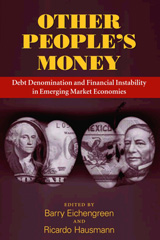5 start with O start with O

Responding to the growing need for tried-and-trusted solutions to the reproductive health care issues confronting millions of women worldwide, Obstetrics and Gynecology in Low-Resource Settings provides practical guidelines for ensuring the delivery of quality OB/GYN care to women in resource-poor countries. Including contributions from leading clinicians and researchers in the field, this welcome overview fills an important gap in existing medical literature on women’s health care and will be an invaluable resource for doctors, clinicians, and medical students at all stages of their careers who work in the global health arena.
The reproductive health risks that all women face are greatly exacerbated when health care facilities are inadequate, equipment and medications are in short supply, and well-trained medical staff are few and far away. Often in these settings, the sole doctor or medical professional on hand has expertise in some areas of women’s reproductive care but needs a refresher course in others.
This informative guide features hands-on, step-by-step instruction for the most pertinent OB/GYN conditions—both acute and chronic—that health care workers in the field confront. The authors examine a wide range of topics, including: strategies to reduce maternal mortality and stillbirths; infectious and sexually transmitted diseases, including malaria and HIV; cervical cancer; contraception; prenatal, delivery, and newborn care; and complications arising from gender-based violence and female genital cutting. Published in a convenient format with a durable binding, this reference will be an essential companion to health care providers throughout the world.

On Internal War reviews the contrasting theory and practice in Soviet and American approaches to their competition in the Third World and relates them to indigenous causes of internal wars. Odom also integrates the military dimensions of insurgencies with external influences and internal politics. Drawing on political development theory, he underscores the sources of instability in Third World states that make insurgencies more likely and offers ways to assess the prospects for democracy in specific cases.
The centerpiece of the study is a practical application of the author’s analysis to three case studies—El Salvador, Guatemala, and the Philippines—and a regional assessment of the Middle East. Odom provides no panaceas but suggests that more promising strategies can be devised.

Henry J. Bruton organizes the discussion around three basic ideas. The first is that well-being reflects not only the availability and distribution of goods and services, but also employment, values, institutions, and quality of preferences. The second is that ignorance is ubiquitous; hence growth of well-being depends primarily on commitments to searching and learning. The extent of such commitments is embedded in deep-seated characteristics of the society, its history, and the degree to which it can look ahead. The third is that economic policy-making is largely a matter of muddling through; furthermore, the idea that an economy can be assumed to be in a general equilibrium and can therefore be left to itself must be rejected. The author explores these ideas and their implications for the processes of growth and for policies to facilitate that growth.
The book breaks new ground in its emphasis on ignorance and learning and its generalized definition of well-being. Drawing from contemporary work in evolutionary economics, the economics of technological change, analytical economic history, and the new political economy, this work should be of interest to historians, sociologists, and students of technology, as well as economists. While directly concerned with development, it has implications for labor, trade, economic history, and industrial organization.
Henry J. Bruton is Professor of Economics, Williams College.

The effects of global processes such as the growth of transnational corporations and investment, the weakening of state sovereignty, increasing poverty, and the privatization of previously public services are described and analyzed in essays by Teresa P. R. Caldeira (São Paulo), Beatriz Sarlo (Buenos Aires), Néstor García Canclini (Mexico City), Farha Ghannam (Cairo), Gyan Prakash (Mumbai), and Yingjin Zhang (Beijing). Considering Johannesburg, the architect Hilton Judin takes on themes addressed by other contributors as well: the relation between the country and the city, and between racial imaginaries and the fear of urban violence. Rahul Mehrotra writes of the transitory, improvisational nature of the Indian bazaar city, while AbdouMaliq Simone sees a new urbanism of fragmentation and risk emerging in Douala, Cameroon. In a broader comparative frame, Okwui Enwezor reflects on the proliferation of biennales of contemporary art in African, Asian, and Latin American cities, and Ackbar Abbas considers the rise of fake commodity production in China. The volume closes with the novelist Orhan Pamuk’s meditation on his native city of Istanbul.
Contributors: Ackbar Abbas, Teresa P. R. Caldeira, Néstor García Canclini, Okwui Enwezor, Farha Ghannam, Andreas Huyssen, Hilton Judin, Rahul Mehrotra, Orhan Pamuk, Gyan Prakash, Beatriz Sarlo, AbdouMaliq Simone, Yingjin Zhang

Presenting evidence that even emerging markets with strong policies and institutions experience this problem, Other People's Money recognizes that the situation must be attributed to more than ignorance. Instead, the contributors suggest that the problem is linked to the operation of international financial markets, which prevent countries from borrowing in their own currencies. A comprehensive analysis of the sources of this problem and its consequences, Other People's Money takes the study one step further, proposing a solution that would involve having the World Bank and regional development banks themselves borrow and lend in emerging market currencies.
READERS
Browse our collection.
PUBLISHERS
See BiblioVault's publisher services.
STUDENT SERVICES
Files for college accessibility offices.
UChicago Accessibility Resources
home | accessibility | search | about | contact us
BiblioVault ® 2001 - 2024
The University of Chicago Press









